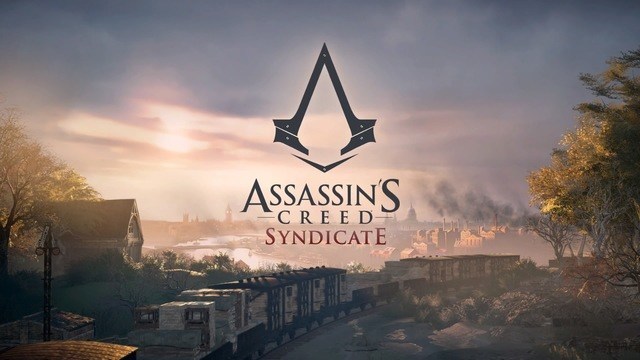Murder is ubiquitous to Assassin’s Creed Syndicate. UbiSoft’s loosely historical dramas are equivalent to cinema’s Saw franchise – there are so many entries and so many deaths, repetition has stopped anyone from caring. Citizens in this architecturally sound, industrialized 1868 London ignore the Assassin who has fallen from the sky to kill their target. They’ll chastise the killer for pickpocketing the recently deceased though. Video games are dumb.
The world of Syndicate appears oblivious. It’s not only the ignorance over murder. This cross-section of the Templar/Assassin war depicts Victorian times as cruel. Story points harshly defame the capitalists within. The villains, dressed in luxurious garb and softly reciting their educated vocabularies, are the equivalent of Wall Street hustlers as seen by Bernie Sanders. Assassin’s Creed Syndicate has the modern dividing lines of good/evil.
One side is Donald Trump, the other Sanders. Fox News versus MSNBC.
Syndicate’s children work for pennies, sweeping factories owned by Crawford Starrick – Starrick a harsh, devilish name in context that could only be given to a vaudevillian-like criminal. Starrick is an insufferable narcissist. “They’re indebted to me, for their lives,” he snivels, comically over spoken as he sips tea while defending his cruel influence on London’s smokey skyline.
As a first kill, Syndicate sends one of its twin assassins, Jacob Frye, into a foundry. Mission objectives visually reveal the toll of child labor. Kids huddle in corners for warmth and sweep aimlessly. One becomes injured as a wooden beam collapses.
The portly factory manager, more akin to Batman’s Penguin than believable plutocrat archetype, docks the injured child’s pay. He crows on about profits, which is apparently the only meaningful word in their industry-driven dialog.
Syndicate’s agenda is firm, but speaks down to a typically liberal audience. The material is ridiculous and coercive, appropriate only for a political attack ad. This is somehow the basis for a mega studio’s holiday video game.
The Reds are coming
Enemies wear red coats. Those red coats scowl at dusty-faced children to work harder. They recruit suspender-wearing, muscular thugs into their ranks as intimidation. They own territory, conveniently displayed on a map with red markings. Red is bad, unless it’s spilled blood.
The good ones wear opposing green. Syndicate’s war is like the opening murder melee in Gangs of New York – but at Christmas. The few innocent police dangling in the middle of the affair are accidents, apparently. Video games are dumb.
Superhero assassin’s from 1860s expand their rebellious arsenal with gifts from Alexander Graham Bell, Syndicate’s item dropping equivalent to James Bond’s Q. Bell invents the phone and the grappling hook (who knew?), the latter which is gold to Syndicate’s maneuverability. Smokestack to smokestack – traversal wastes less time than before. And how cute and eccentric Bell’s dialog is. “Call it a telephone!,” spits an assassin. “Tele? How bizarre,” spouts Bell. That’s history according to Assassin’s Creed.
This all feels robotic so many games into the series and the numbers-based gatekeeping is absurd.
That’s UbiSoft’s contemporary design: Far Cry, Assassin’s Creed, Watch Dogs, The Crew. Tick off parts of compartmentalized maps, kill/beat targets, unravel a narrative of limited sense. Syndicate is building a radicalized cause, the Occupy Wall Street of smoke stacks and steel, until UbiSoft’s tired design philosophy collides with the idea.
And that tired design is purely all numbers, not that most video games are anything but. Police can be turned sympathetic to the overrun of labor exploitation, but only when arbitrary numbers are achieved. They’re not joining because of narrative function (as if it would make sense to turn them after murdering their ranks).
Sympathizers join only when crafting resources are gathered. Are they lured by the promise of copper or are they made of wool? Some men can be stabbed 20 times in a fight without effect because a phantom number above their heads reads level 9 instead of 3. Gatekeeping is absurd. “Open” worlds remain only as open as they’re allowed to be.
There is some progress.
A female assassin is in the lead. There are counter-acting female villains and the spunky brawling animations are sterling entertainment. Races are represented, too, in this Dickens-like story, which happens to feature Dickens. UbiSoft shows they can learn after the Unity gender uproar. At least in that one regard,Ubisoft has matured and evolved.
But maybe we should expect the entirety of this tower-climbing, raiding, and fighting tentpole to mature and evolve as well. As it sits, Syndicate only has the depth of a grade school textbook, albeit with blood.










Published: Oct 28, 2015 06:58 am